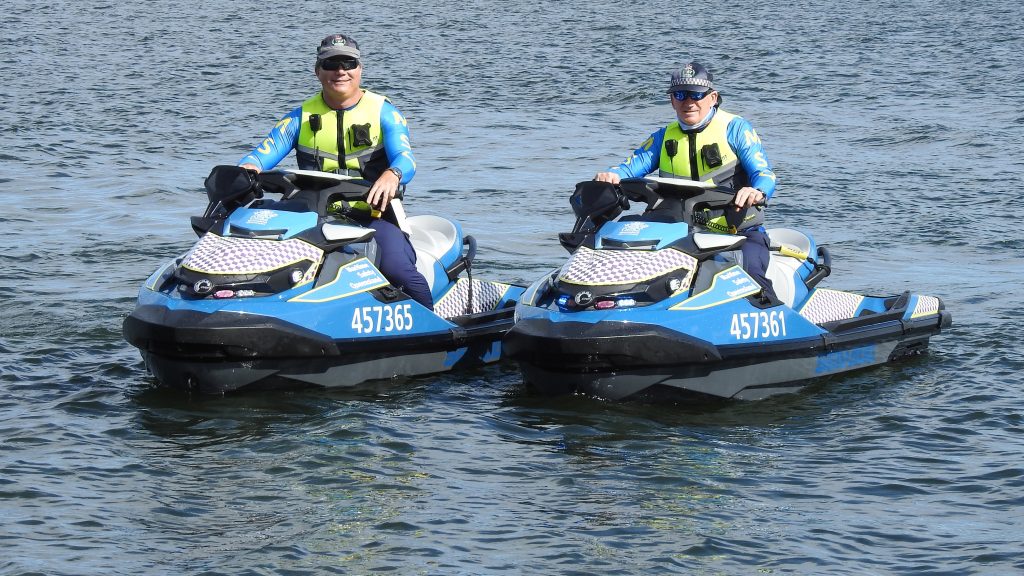Maritime Safety Queensland (MSQ) officers will embark on a 12-month education and enforcement program targeting Jet Skis and personal watercraft – as well as boaties – with a new fleet of their own.
Waterway authorities in Queensland will soon have six Sea-Doo models to focus on Jet Skis and personal watercraft, amid massive growth in licence holders and vessel registrations.
The latest figures show the number of Jet Ski and personal watercraft registered in south-east Queensland has increased by a staggering 40 per cent in the five years to June 2020.
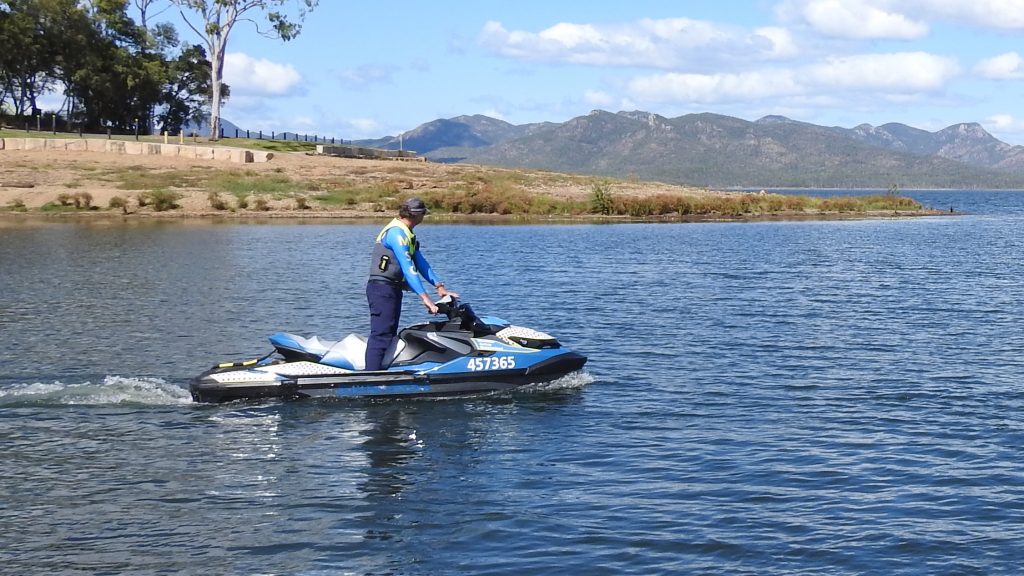
The 40 per cent increase in one part of Queensland compares to a 6 per cent increase in the number of Jet Skis and personal watercraft registered across the entire state over the same period – and an increase of just 1 per cent for all other vessels over five years.
According to authorities there are now more than 24,000 Jet Skis and personal watercraft registered in south-east Queensland alone – and approximately 168,000 personal watercraft licence holders across the entire state (as of 30 June 2020).
Queensland Transport and Main Roads Minister Mark Bailey said the increasing popularity of Jet Skis and personal watercraft prompted a new focus on safety.
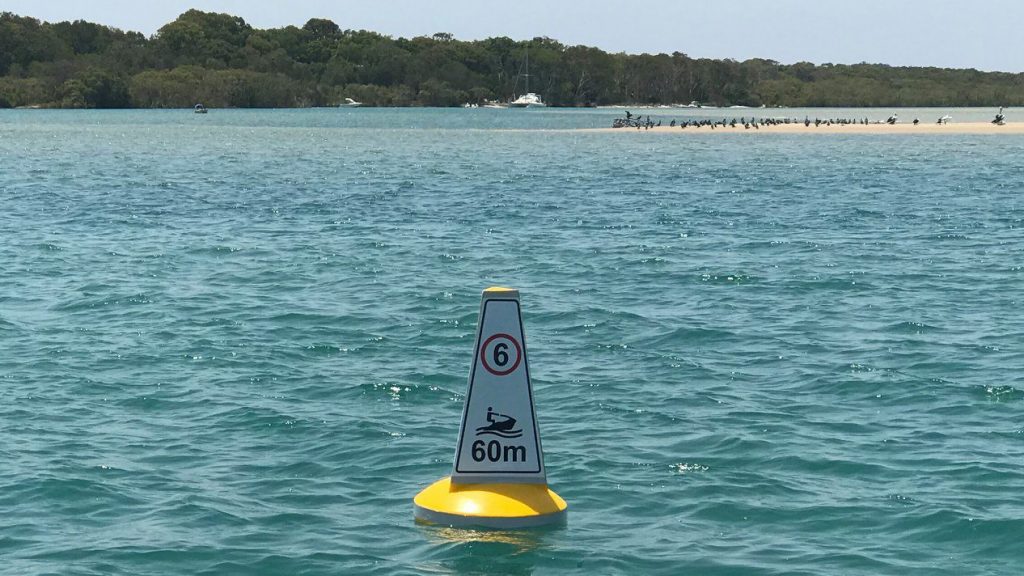
Above: A warning sign in Queensland showing a 6-knot zone 60 metres from shore.
“Most (personal watercraft) riders comply with the regulations, but maritime compliance officers continue to see too many instances where they don’t,” said Mr Bailey. “Too often (personal watercraft) riders are not sufficiently safety-conscious.”
Queensland authorities cited statistics which showed the number of waterway collisions involving Jet Skis and personal watercraft on the Gold Coast had doubled from January 2017 to June 2020. This was “more than the rest of the state combined” for all vessel incidents.
“We also know speed and wake, or wave jumping were the two most significant causes of (personal watercraft) incidents,” said Mr Bailey.
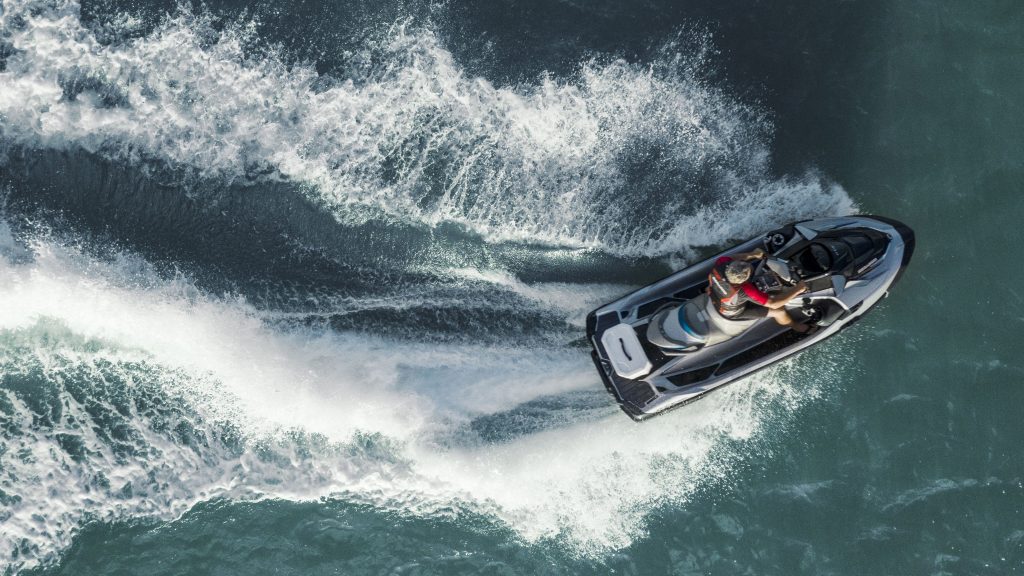
As a result in the sharp increase in crashes and injuries involving Jet Skis and personal watercraft, Queensland authorities plan to crack down on dangerous and antisocial riding behaviour.
“Enforcement will be an important part of this campaign, with (the) Maritime Enforcement Team … out in force on the water,” said Mr Bailey.
“There will also be a concerted effort on communicating with and educating (Jet Ski and personal watercraft) riders and others in the boating community about their safety obligations.”
As part of a trial, four Sea-Doo GTX 155 watercraft decked out in Maritime Safety Queensland livery and fitted with blue flashing lights, joined the fleet of seven Queensland water police and four Queensland fisheries jet skis on patrol in late 2019.
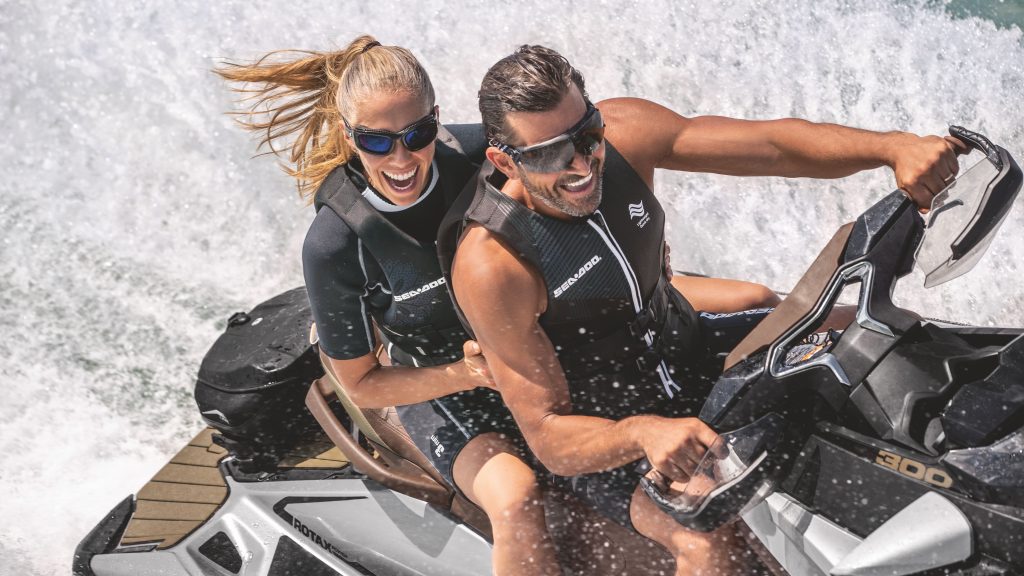
Following the successful trial, Maritime Safety Queensland is due to add two new Sea-Doo Fish Pro 170 models to the fleet of four Sea-Doo GTX 155 models in early 2021 to expand the total MSQ fleet to six watercraft. The six Sea-Doos will eventually be supported by eight new rigid inflatable boats (RIBs).
“We’ve seen unprecedented growth in personal watercraft registrations and licences,” said Angus Mitchell, the general manager of Maritime Safety Queensland.
“We will embark on a combination of education and compliance checks on the water, for boaties and personal watercraft riders,” he said. “We want everyone to have a safe day on the water.”
Mr Mitchell said the MSQ officers – who have the same power as police to stop boats and personal watercraft for routine checks – can hand out warnings as well as fines.
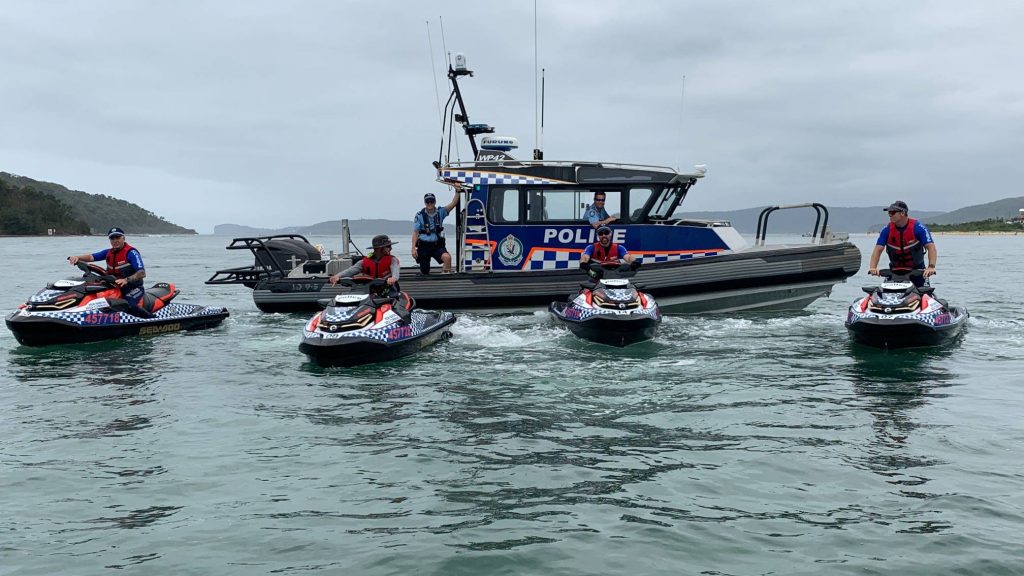
Above: NSW Police Marine Area Command on patrol.
“There are some offences we have no tolerance for, such as not wearing a life jacket, operating an unregistered boat or watercraft, or operating a boat or watercraft while unlicenced – those are all tickets straight away,” said Mr Mitchell.
“We want to educate people about the importance of speed zones and distance-off rules, and talk to people on boat ramps before they hit the water,” said Mr Mitchell.
Mr Mitchell said one of the biggest areas of concern – which many riders are unaware of – are distance-off rules: 60 metres away from swimmers and 30 metres away from other vessels (as is the case in NSW).
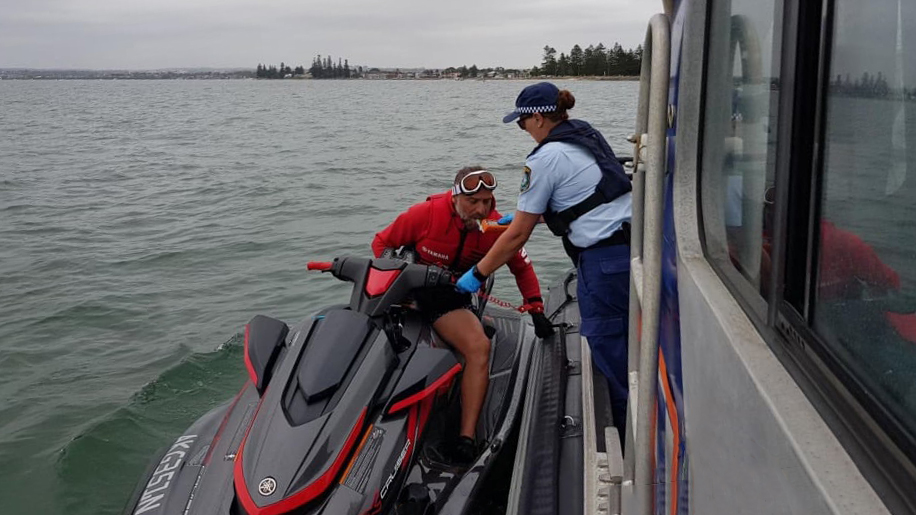
Above: Water Police in NSW can submit Jet Ski riders to random drug and alcohol tests.
Examples of fines in Queensland: operating a personal watercraft while unlicenced ($533), operating an unregistered personal watercraft ($266), exceed speed in speed-restricted zone ($266), not wear lifejacket on a PWC ($266), disobey distance-off rules while operating a PWC ($440).
Examples of fines in NSW: operating a personal watercraft while unlicenced ($500 first offence, $750 second offence), operating an unregistered personal watercraft ($500), exceed speed in speed-restricted zone ($250 or $500 depending on the speed zone), not wear lifejacket on a PWC ($250), disobey distance-off rules while operating a PWC ($250). Authorities in NSW can also seize a watercraft if it has been driven dangerously.
Examples of fines in Victoria: operating a personal watercraft while unlicenced ($826), operating an unregistered personal watercraft ($826), exceed speed in speed-restricted zone ($330), not wear lifejacket on a PWC ($330), disobey distance-off rules while operating a PWC ($330). As with authorities in NSW, Victoria also has the power to seize a watercraft if it has been driven dangerously.
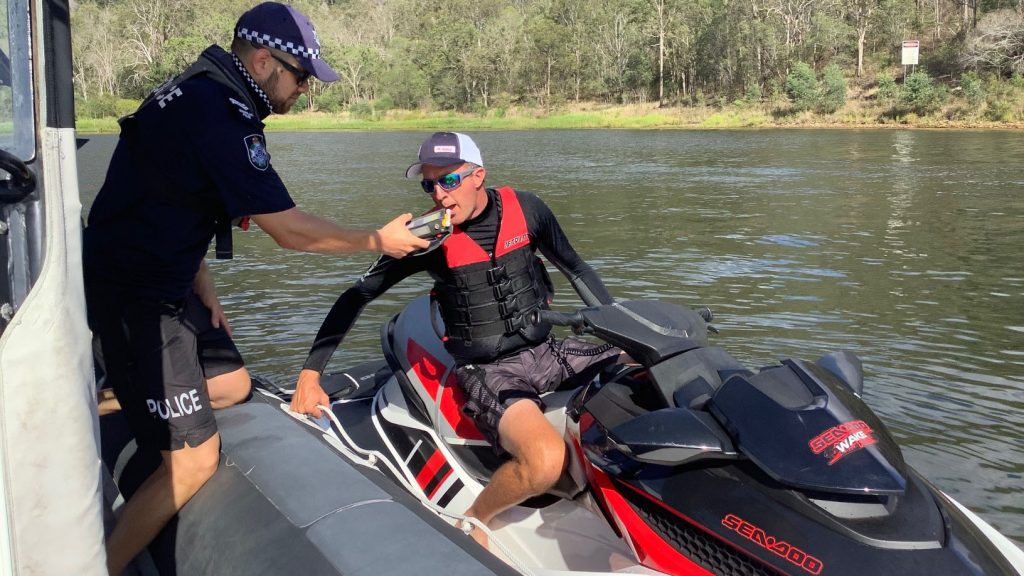
Above: Queensland Police conduct a random alcohol breath test on the water.
Police and Maritime officers in NSW have run large fleets of personal watercraft for more than a decade, often deploying them to target problem areas on the coast and in inland waterways in the peak of summer.
Until recently, Queensland authorities relied on cruiser boats and RIBs for waterway enforcement.
Mr Mitchell said all officers assigned to the MSQ Maritime Enforcement Team hold a minimum Coxswain Grade 1 Certificate of Competency, a personal watercraft licence and have undertaken specialised accredited personal watercraft training.
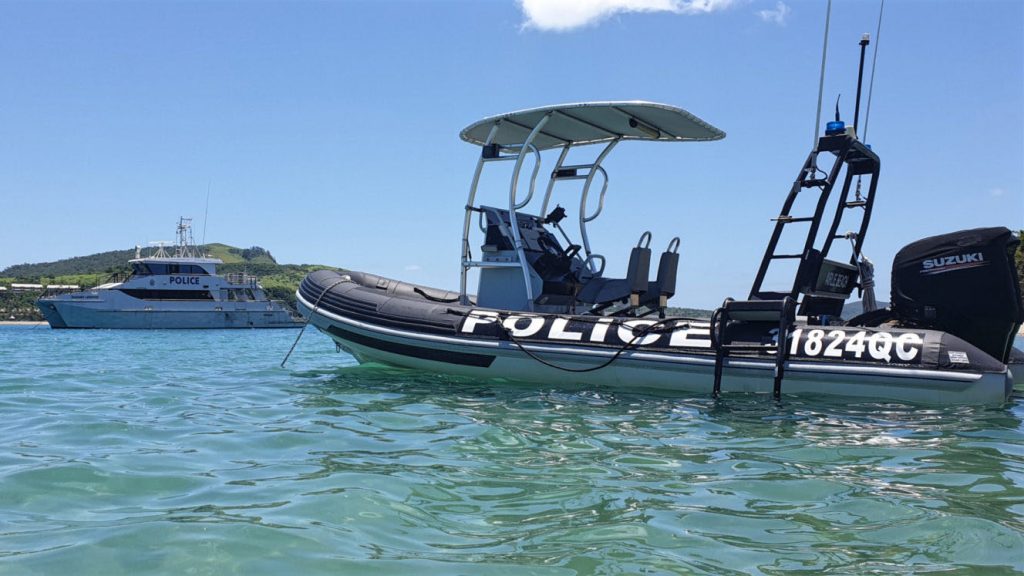
MORE: Police warn Jet Ski riders ahead of summer 2020/2021



